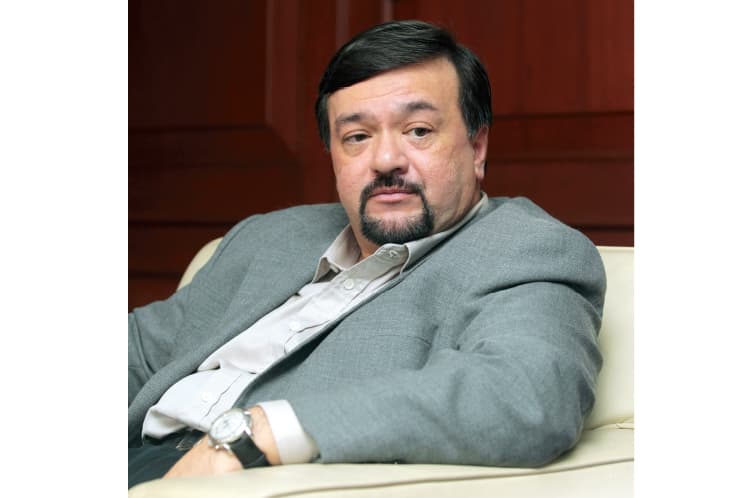
This article first appeared as 'Finding the right balance' in The Edge Malaysia Weekly, on May 20, 2019 - May 26, 2019.
TENAGA Nasional Bhd’s new chief Amir Hamzah Azizan has a lot on his plate. Roped in just as the power sector is drifting towards further deregulation, he also needs to address the group’s overseas aspiration and strike a balance between Tenaga’s social agenda as a government-linked company and its responsibility to its shareholders.
The following is an excerpt from his hour-long interview with The Edge.
Joining Tenaga
I’ve been truly blessed to be given an opportunity to come and [offer] something back [to] the nation. I look at it more as an amanah (trust) — to lead it and manage it well.
The question was whether I was going to be ready fast enough, rather than to say no to the opportunity. There is a lot of commonality between the power and the oil and gas sectors (he spent many years with the Shell group and Petronas). The investment cycles are also a bit long and the infrastructure of running a very large organisation is also the same.
Tenaga’s social and corporate obligations
People always say the social agenda does not sit well with a commercial agenda. The reality is that when Tenaga was created, it was to do those two things — [such that] you can co-exist in this space … and I think we have been capable of finding the balance.
We have co-existed, allowing us to be a very decent corporate [body]; managing like a corporation, earning respectable returns for shareholders and managing the yields that we need, but at the same time, working together with the government to see how the social agenda can be done … the electrification in Malaysia, for example. So it is kind of an exciting space.
Reimagining TNB and becoming a top 10 utility player by 2025
That internal aspiration is one of the harder challenges that we have to [act] on, because it requires Tenaga to look at opportunities beyond its waters and then take on new capabilities while trying to develop its international portfolio. If not, we will never get to the scale that we need. Within the transmission and distribution [segment], we are well within the top 10. But scale and so on? We are not there yet.
Outlook on Malaysia’s electricity generation fuel mix and whether the nation is too dependent on coal
After factoring in renewables (the government wants to step up renewables in the space of up to 20% of installed capacity, excluding large hydro by 2030), the percentage of fuel mix is likely to remain the same (predominantly coal and gas).
The [current] mix is [in line with] government and regulatory policy decisions to balance the trilemma of energy security, affordability and sustainability. As of today, coal still makes sense as it is the cheapest source of supply, and technology has driven the capacity to utilise coal with better emissions [through] control mechanisms that we have put in place that allow [our plants] to have less impact on the environment.
Tenaga’s options after the regulated domestic gas price is marked to match prices in the open market under the gas rationalisation programme
We have a small gap [to reach] that point [of market parity]. We already have two regasification terminals installed in Malaysia. So the optionality for (imported) liquefied natural gas is there.
Will Tenaga then go out and look for alternative supply? That is something for us to think through — whether we have the capacity to get a better source of supply than our current supplier [Petronas].
I don’t think we will determine the amount of gas that we will take [from Petronas] … it could be a viable supplier [even after local gas prices reach market parity], as it has a trading arm that also imports and trades energy.
Is corporatisation of Tenaga what the shareholders want?
We have not asked the shareholders yet. But I think that game plan is there. Executing it and how deep we want to execute it is the next decision that the shareholders will have to make.
Let’s say we corporatise and they say, actually, there is value for me to do another listing — that is a different choice.
At the moment, we are ready to compete in the landscape. Corporatisation can be a good form of doing that. But readiness in releasing value in a different form, that, we are not there yet.
Criticism that Tenaga is able to offer low rates for power plant projects by cross-subsidising with income from transmission/distribution
It is not true. Transmission and distribution is a regulated business. The EC (Energy Commission) is there and it ensures that capex, yields and others are monitored to the nth degree. And the EC does a very good job. We’ve had nice long debates along the way.
I cannot take anything from [the regulated] side to subsidise the other side without EC [interfering]. I am stuck.
So I hope that myth (of Tenaga cross-subsidising) will go away, because it is a myth. It is nice to complain about it but the reality is that we can’t do it. Sometimes, we feel very short-changed when people say that.
On Tenaga’s share price
Tenaga is one of the larger corporates [in Malaysia] with a large foreign following. So, when they decide to trade out and put their funds elsewhere, it hurts us a little bit more.
[But] I don’t think it is a sentiment on the fundamental business proposition, it is the [investors’] portfolio allocation that led the way. I am not too worried about the price as our business is a long-term one.
Read also:
Save by subscribing to us for your print and/or digital copy.
P/S: The Edge is also available on Apple's AppStore and Androids' Google Play.